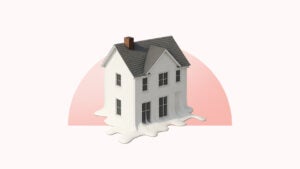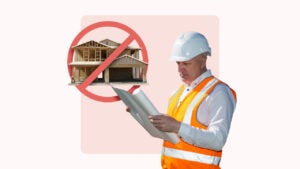Know your rights as an LGBTQ+ homebuyer

Key takeaways
- The Fair Housing Act prohibits discrimination based on an individual’s sex.
- Today, the most robust housing protections for LGBTQ+ buyers exist at the state level.
- If you believe you’ve been discriminated against by anyone in the real estate industry, contact an attorney or an LGBTQ+ rights organization.
If you’re an LGBTQ+ homebuyer, you may be unsure of your current legal status. Recent federal policy changes have eroded some equal housing protections for LGBTQ+ Americans, leaving the most stringent laws at the state level.
Meanwhile, LGBTQ+ people are still less likely to own homes than straight, cisgendered people. The homeownership rate among people who identify as LGBTQ+ is only 51 percent, while it’s 71 percent for people who identify as straight and cisgender, according to a 2024 analysis by the Urban Institute.
Here’s what you need to know about LGBTQ+ homebuyer rights in 2025.
What rights do LGBTQ+ homebuyers have?
The Fair Housing Act prohibits discrimination based on sex — among other protected characteristics — when someone is buying a home, applying for a home loan or housing assistance, or taking part in other activities that relate to housing.
Subsequent decisions by the Department of Housing and Urban Development (HUD), the agency that administers the Fair Housing Act, extended its protections to those facing discrimination based on sexual orientation and gender identity. However, these protections aren’t specifically set out in the law, and recently, HUD Secretary Scott Turner announced that HUD would roll them back in some scenarios.
This means that, in many cases, LGBTQ+ homebuyers must rely on state law when making discrimination claims. Currently, 22 states, Washington D.C. and the U.S. Virgin Islands have laws against housing discrimination based on sexual orientation and gender identity. Wisconsin and Iowa ban discrimination based only on sexual orientation.
Housing discrimination is the act of treating a residential buyer, renter or homeowner unfairly solely based on a protected characteristic, such as race or sex. It became illegal under the Fair Housing Act in 1968. Refusing to extend a mortgage or charging more for one, refusing to sell or rent a home, or evicting someone for no reason other than being a part of a protected class are all examples of housing discrimination.
How to recognize housing discrimination
While the HUD enforces the Fair Housing Act, and state-based agencies enforce state housing laws, it’s up to homebuyers to call out unfair practices. Watch out for these clear signs of discrimination:
- A mortgage lender who isn’t upfront about mortgage rates
- A real estate agent who refuses to represent you
- A seller or real estate agent who refuses to consider your bid, or who suddenly declares the house off the market
- If you and your partner have to work harder to get financing, or pay more for it, compared with heterosexual couples
How to protect yourself from housing discrimination
One way to protect yourself from housing discrimination is to work with professionals who’ve been vetted by friends and family or LGBTQ-friendly organizations. For example, you can find real estate agents through the National Association of Gay and Lesbian Real Estate Professionals (NAGLREP) or the LGBTQ+ Real Estate Alliance.
You’ll also want recommendations for a mortgage lender and potentially a real estate attorney.
You may want to keep detailed records of the conversations you have during your homebuying journey. These can be helpful if you do find yourself filing a discrimination claim.
What to do if you experience housing discrimination
If you believe you’ve been the victim of housing discrimination, you can take action by:
- Speaking with an attorney
- Contacting your state housing authority or local legal aid organization
- Filing a complaint with the Consumer Financial Protection Bureau online
- Calling the Lambda Legal help desk or your local American Civil Liberties Union
- Contacting your state’s NAGLREP chapter, if one exists
FAQ
Why we ask for feedback Your feedback helps us improve our content and services. It takes less than a minute to complete.
Your responses are anonymous and will only be used for improving our website.









